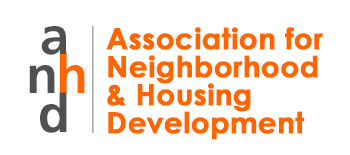NY Times on exposé by CASA & Urban Justice Center of “non-rent” fees.
Tenants and organizers have long denounced aggressive tactics that landlords of rent-regulated buildings use to drive up rents beyond the annual contractual increases. ANHD’s report, The $20,000 Stove exposes how landlords can too often abuse the “individual apartment improvement” rent increase loophole by charging a rental increase far above the value of actual improvements. This loophole is a major tool used to price vacant apartments out of the rent stabilization program. Many ANHD members have also tracked Major Capital Improvements (MCI) charges that can dramatically drive up the rent for an entire building when landlords pass on the cost of building improvements. Both of these systems lack appropriate oversight and can be extremely difficult to challenge.
But there are many other charges landlords unfairly pass on to tenants. Tenant organizers in the Bronx have documented the wide range of non-rent fees landlords charge and the impact they have on affordable housing. The problem is particularly acute in buildings managed by Chestnut Holdings, a company that is fast becoming a major landlord of rent stabilized buildings in the Bronx. In a new report, The Burden of Fees: How Affordable Housing is Made Unaffordable, CASA (Community Action for Safe Apartments) of New Settlement Apartments and the Urban Justice Center surveyed and collected data from over 250 tenants in Chestnut Holdings buildings and found that 81% of the tenants had been charged some sort of non-rent fee, averaging $671.13 each. Fees range from $5 – $25 per month for air conditioners and washing machines, to hundreds of dollars for MCI or damage fees, and into the thousands of dollars for legal fees.
Some fees are legal, others are not, but a lack of knowledge of the laws, fear of eviction, and the labyrinthine system to challenge fees leave tenants few options but to pay the fees or fear retribution. Chestnut Holdings exploits this in their attempts to drive out lower-rent paying tenants and raise the rents further.
As the report points out, there are specific actions our government can take to address this situation. The State Housing agency, Housing and Community Renewal (HCR), should proactively audit landlords suspected of violating regulations, clarify regulations and provide fact sheets for tenants to understand the fees and how to challenge them, and collaborate with tenants and advocates to identify and monitor the worst offenders. The Housing Court administration should also take proactive steps to ensure the fees are being properly charged and that tenants are made aware of their rights. And, tenants should be aware of their rights under the Tenant Protection Act and file a harassment suit in housing court to stop the illegal fees when they become part of a pattern of harassment.
ANHD blog team: Benjamin Dulchin, Moses Gates, Ericka Stallings, Jaime Weisberg, Barika Williams, Eric Williams. Anne Troy, editor.
 ANHD 2016 Building the Community Development Movement
ANHD 2016 Building the Community Development Movement

The numbers cited in CASA’s survey are misleading and a result of CASA targeting Chestnut tenants and surveying those who would help skew their numbers favorably. In fact, the number of tenants surveyed represent less than 3% of Chestnut’s nearly 6,000 tenants.
The state-approved appliance charges are completely legal, and MCI fees are only charged after approval from the Division of Housing and Community Renewal. Such fees are certainly not a vehicle to unfairly raise rents or drive out long-time tenants.
To gain an accurate perspective of the situation, see this Fact Sheet and how CASA’s myths fail to stack up against CHESTNUT’S facts: http://chestnutholdings.com/wp-content/uploads/2013/09/CASAs-Myths-vs.-CHESTNUTS-Facts.pdf.